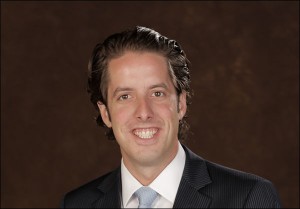ON THE DEFENSIVE: The expanding Fourth Amendment
By: Anthony Cotton//September 25, 2015//

In recent years, some of the biggest cases before the United States Supreme Court have dealt with how Fourth Amendment protections should apply in modern circumstances.
Should, for instance, cell-phone contents be shielded from unreasonable searches and seizures? Should the police be permitted to use drug dogs to sniff out places that an officer would otherwise be forbidden to enter? Should it matter if the dog is sniffing a vehicle rather than a home?
As a general rule, defendants can prevail in Fourth Amendment claims only if they can show that the government has intruded into a place where a person would have a “reasonable expectation of privacy.” Yet in 2012, Supreme Court Justice Antonin Scalia, writing for the majority in the case of United States v. Jones, resurrected what is known as the common-law trespassory test.
This test greatly expands the reach of the Fourth Amendment. Now, if a defendant can show the government “trespassed” into a constitutionally protected area, he or she can secure the suppression of any contraband found during that intrusion.
Clearly, the Fourth Amendment protects one’s home from government intrusion. What some may not recognize, though, is that there is an area around a home – known as the curtilage – that receives the same degree of protection.
For example, if a police officer brought a drug dog onto the front porch of a person’s house – a place that would clearly be within the curtilage – that act of trespassing would result in the suppression of the derivative evidence. But many cases are not quite so clear-cut.
And because the notion of “curtilage” lacks a strict definition, courts have struggled with how to apply it to multi-unit dwellings. Among the questions without clear answers is: Should a person receive Fourth Amendment protection over areas that he or she shares with other tenants?
This month, the Wisconsin Supreme Court wrestled with that question in the case of State v. Dumstrey. At issue was whether a locked, secure underground parking garage should be considered part of the curtilage. If it should, then any contraband found by officers while they were technically trespassing would be suppressed.
The United States Supreme Court has not provided specific guidance in this area. But, as far back as 1974 in the case of Conrad v. State, the Wisconsin Supreme Court described a common storage room of an apartment house as “clearly within the curtilage.” Stare decisis should require the court to make the same finding for the locked underground parking garage.
In any event, the Wisconsin Supreme Court and lower courts should follow the lead of the United States Supreme Court by broadly interpreting the Fourth Amendment. Especially in urban areas, more and more people are electing to rent or otherwise live in communal circumstances.
These people expect that nobody, including the police, will trespass into locked, secured areas. If courts permitted the police to search storage areas or underground parking garages, the Fourth Amendment would be given two meanings – one for those who rent and one for those who own their home.
A holding of this sort would be inconsistent with the principles the Fourth Amendment was written to uphold.
Legal News
- FTC bans non-competes
- Gov. Evers seeks applicants for Dane County Circuit Court
- Milwaukee man charged in dismemberment death pleads not guilty
- Democratic-led states lead ban on the book ban
- UW Madison Professor: America’s child care crisis is holding back moms without college degrees
- History made in Trump New York trial opening statements
- Prosecutor won’t bring charges against Wisconsin lawmaker over fundraising scheme
- Republican Wisconsin Senate candidate says he doesn’t oppose elderly people voting
- Vice President Harris to reveal final rules mandating minimum standards for nursing home staffing
- Election workers fear threats to their safety as November nears
- Former law enforcement praise state’s response brief in Steven Avery case
- Eric Toney announces re-election bid for Fond du Lac County District Attorney
WLJ People
- Power 30 Personal Injury Attorneys – Russell Nicolet
- Power 30 Personal Injury Attorneys – Benjamin Nicolet
- Power 30 Personal Injury Attorneys – Dustin T. Woehl
- Power 30 Personal Injury Attorneys – Katherine Metzger
- Power 30 Personal Injury Attorneys – Joseph Ryan
- Power 30 Personal Injury Attorneys – James M. Ryan
- Power 30 Personal Injury Attorneys – Dana Wachs
- Power 30 Personal Injury Attorneys – Mark L. Thomsen
- Power 30 Personal Injury Attorneys – Matthew Lein
- Power 30 Personal Injury Attorneys – Jeffrey A. Pitman
- Power 30 Personal Injury Attorneys – William Pemberton
- Power 30 Personal Injury Attorneys – Howard S. Sicula











